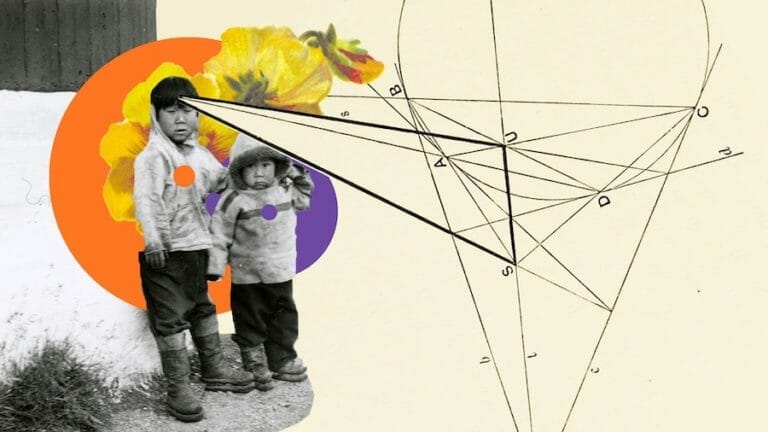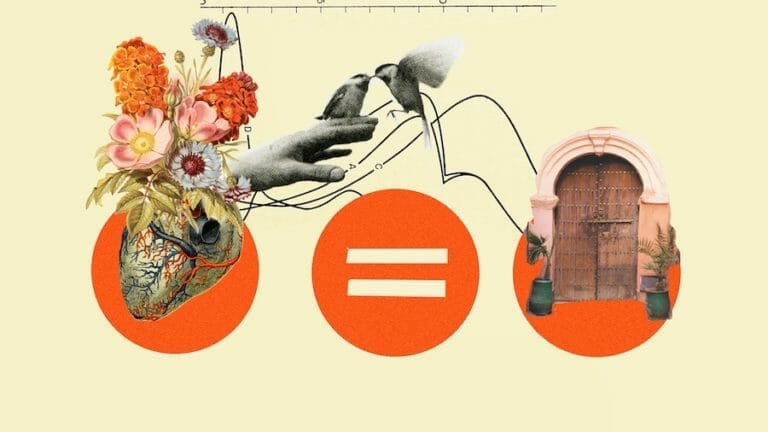Trauma and emotional trauma are such an underexposed factor that impacts heart health. It’s also a bridge. It’s a connector between sort of the spirit, the emotional, and the physical heart. When we talk about emotional trauma and the impact that it’s having on biology, that’s the core of mind-body medicine. So, it’s hugely important, and it does fall under this category where we talk about stress.
I think that that word is such an overused word. I think a lot of people know of stress. They know that stress is bad for them. I think a lot of people realize stress is really bad for the heart, but we have a superficial understanding about the word stress. People may associate it with getting too many emails, or too many to-do things on the list, or too many phone calls, too much work pressure.

When we talk about stress a bit more deeply, adult stress is big things like going through relationship difficulties, divorce, job stress, physical accidents. That is getting a bit deeper, and it’s a bigger understanding of the word stress. But most people don’t realize the greatest source of stress in their life most likely came from emotional trauma in childhood, and it’s just not understood very well. So, this is kind of the area that I focus on, and I’m trying to get the word out about how that can be, and where the studies came from, and so on.
Stress as a result from childhood trauma
Yeah. Where this sort of research and understanding came from was done by the CDC, the Center of Disease Control in the U.S., and Kaiser Permanente. They started studies in the mid-1990s where they started to look at the level of emotional trauma in childhood, and correlated it with diseases and illness onset in later life. And at the time when they started the studies, these were huge studies. 17,500 adults replied. These were landmark studies.

At the time, they picked up ten categories of sort of emotional trauma that they knew about, they understood, and there was some research already on them. It was things like parents separating or divorce, physical, sexual, or emotional abuse, physical and emotional neglect, domestic violence, mental illness in the family, substance abuse, or incarceration by a related family member.
We’re not talking about failing a test. It’s fairly serious trauma. But the key was 67% of all adults have at least one ACE. More than sort of 80% of that group had two. They found if you had a high level of these adverse childhood events—ACEs for short—you had a traumatic increase risk of 7 of the top 10 causes of death. And if, for example, if you had six ACEs, you have a 20-year reduction in lifespan.
If you had kind of four ACEs, you had an increased risk of things like chronic obstructive pulmonary disorder of 2.5 times higher, cancer was 2.5 times higher, being suicidal was 12 times higher, and depression is over four times higher. But the key one is if you had eight ACEs, you were 3.5 times more likely to have heart disease in later life, the biggest killer in the world today.
So, the correlations were gigantic, and it showed us that we can’t afford to ignore the impact that was going on. There are big correlations with other disease states as well, like chronic fatigue. Autoimmunity is a huge risk onset if you’ve had trauma in childhood as well. It’s fascinating to start thinking, “Well, how can that be? How come the body seems to remember what’s happening in the trauma?” Biologically it changes. Then, later on, it kind of effects biology. There’s a hugely interesting and important aspect to look into.
80% of the population had ACEs. It’s a big deal.
The research has said that we missed some. 67% prevalence was actually underestimated. Things like being a victim of racism as a child, anything that happens under the age of 18, homophobia, bullying at school, things like hospitalization with an illness, a traumatic birth… It’s important as well.

DNA, ACEs, and inter-generational trauma
The researchers know they underestimated. The other thing about trauma is that it’s now confirmed it definitely can be inter-generationally inherited. If you look back at your own childhood and you can’t really see anything that could have impacted you. It may be that you inherited it from your parents or grandparents.
That’s been confirmed in studies of Holocaust victims. For example, where the grandchildren of the Holocaust victims have the same physiological or psychological expression as their grandparents. There are big studies now showing that the progeny in things like rats and mice experiments, the microRNA in the sperm of the DNA, and so on is changed. And that gets passed on to the pup rats. Even when it was injected into healthy females, the traits were there. So, it’s not bad parenting.
It’s incredible. You can find that in human population studies anywhere where there’s been war or famine. You’ll see the offspring or the progeny affected. So, that’s important to know about. It’s just why it’s so prevalent. But there’s also something else really interesting and important to understand. When we say trauma, when something’s traumatizing a person, essentially we mean at the time that an event happened, someone didn’t have the resources to deal with it.
So, what happens is it gets frozen into what you could call the energy field into the emotional body. It becomes part of the unconscious mind, and it also get stored in the physical body, and the body remembers. You may forget that it happened, but your mind and body hasn’t forgotten. Now, the interesting thing is that also some people are highly sensitive types. You may have read about highly sensitive types or slightly more empathic people. They can feel other people’s energy. They can feel other people’s emotions.
There seems to be a group that may be a little bit more affected by trauma as well. We’ve ignored this group. Essentially, what I’m saying is what traumatizes one person may not traumatize another. This is where we get into things like covert trauma, and something we’re talking more and more about is silent ACEs. Silent ACEs are often in the emotional trauma category. They’re not obvious.
It’s not like you come out with a bruise on your face, or your parent was a known alcoholic, or something that. It’s much more subtle tends to be more of emotional, verbal manipulation, and abuse from a caregiver. People have to self-report whether they had emotional abuse as a child. And how can a child know what was appropriate behavior, especially when we get into the more subtle levels?
The bottom line is nobody’s unaffected by ACEs, and it changes the biology. And we can get into more about mechanisms about how the mind biology changes.

How does the source of trauma affect a child?
Anybody with an influence… an influential person on the child’s life. A person of authority, for sure. A trustworthy person. If something happens to a child and there’s one trustworthy adult that they could talk about it at the time, that drastically reduces the impact of the trauma. It’s only when we’re looking at fairly severe trauma. We’re looking at where it happens or intermittently over time—and the child didn’t have a support network. Nobody to talk to about it at the time. Some are more are more sensitive to it than others. Yeah.
The subjective state of the person you’re talking to or the child is so important because it may not ever traumatize you as an adult, but it can as a child. And the reason it’s so important in children is just basically their brains are still developing. They’re still in the growth phase up to age 18. Trauma impacts and imprints on the adult brain, but it has even more impact and physical impact on a child’s brain because that’s the time the brain’s still developing. The neural pathways are still developing, and the brain’s basic learning capacities are on high levels because they’re still developing. This is why they are even more imprintable at that age. It’s very important to consider that for our children.
Measuring subtle sources of trauma like media, social conditioning…
You can see how it might play out as well. It gets internalized and essentially, with trauma, it affects personality. It affects identity. It affects behavior. You see the sort of level of eating disorders; for example, you have seen young girls today, which has been exploding. That is often the impact at the identity level of both cultural and caregiver influences.
I definitely talk about how people can be… I call them energy vampires. Either they’re outrightly abusive, or people who are unfortunately, victims of trauma can end up being abusive as well. If they’re chronically stuck in a very low state, and they don’t want to do anything about it, and they constantly are being very needy on other people, they become an energy vampire, as I call it as well.
But I also talk about cultural and energy vampires. If you put a child in a school where there’s extreme competition, for example. The child is discounted and devalued in a school environment because they didn’t reach a particular grade. Especially, say, in the academic world, I think we are traumatizing our children and impacting them for a lifetime when we do things like that. So, absolutely. Cultural impact could be schooling. The competition levels, things like this.
Anything which essentially causes a child to start valuing themselves kind of externally by external factors. Anything whether it’s an achievement, doing rather than being, physical looks. All that kind of points people away from connecting to their authentic heart-self and who they truly are. Anything that does that is a form of trauma. In my book, I would call that the silent ACEs when that happens. But I’m trying to help raise awareness about that, too, because it all counts.
